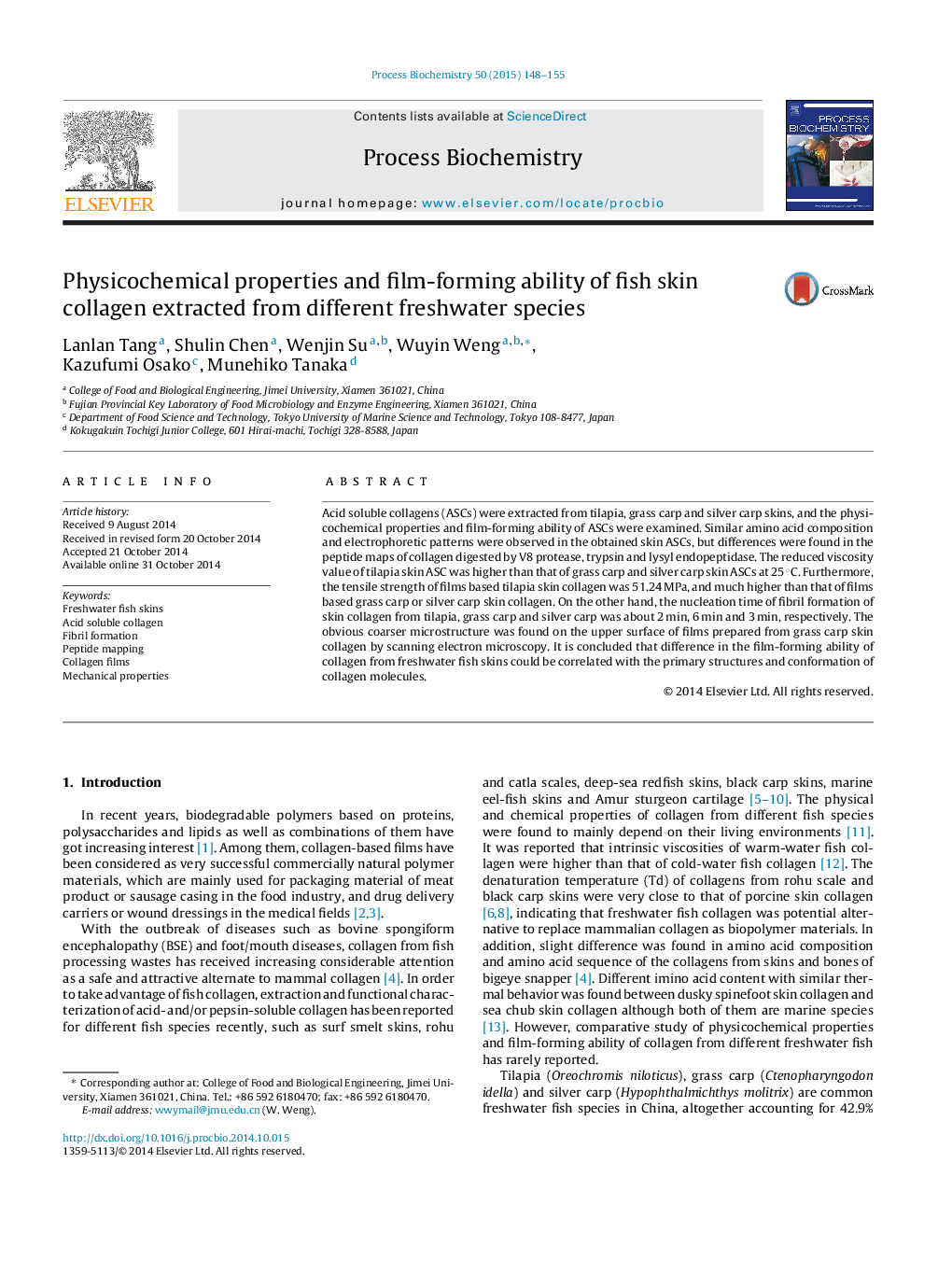| Article ID | Journal | Published Year | Pages | File Type |
|---|---|---|---|---|
| 34484 | Process Biochemistry | 2015 | 8 Pages |
•Acid soluble collagens were extracted from freshwater fish skins.•Tilapia skin collagen viscosity was higher than glass carp or silver carp at 25 °C.•Tilapia skin collagen film had high strength.•Nucleation time of fibril formation of skin collagen from glass carp was the longest.•Upper surface of grass carp skin collagen films was coarser in the microstructure.
Acid soluble collagens (ASCs) were extracted from tilapia, grass carp and silver carp skins, and the physicochemical properties and film-forming ability of ASCs were examined. Similar amino acid composition and electrophoretic patterns were observed in the obtained skin ASCs, but differences were found in the peptide maps of collagen digested by V8 protease, trypsin and lysyl endopeptidase. The reduced viscosity value of tilapia skin ASC was higher than that of grass carp and silver carp skin ASCs at 25 °C. Furthermore, the tensile strength of films based tilapia skin collagen was 51.24 MPa, and much higher than that of films based grass carp or silver carp skin collagen. On the other hand, the nucleation time of fibril formation of skin collagen from tilapia, grass carp and silver carp was about 2 min, 6 min and 3 min, respectively. The obvious coarser microstructure was found on the upper surface of films prepared from grass carp skin collagen by scanning electron microscopy. It is concluded that difference in the film-forming ability of collagen from freshwater fish skins could be correlated with the primary structures and conformation of collagen molecules.
Graphical abstractFigure optionsDownload full-size imageDownload as PowerPoint slide
